
The Business of Fashion
Agenda-setting intelligence, analysis and advice for the global fashion community.

Agenda-setting intelligence, analysis and advice for the global fashion community.
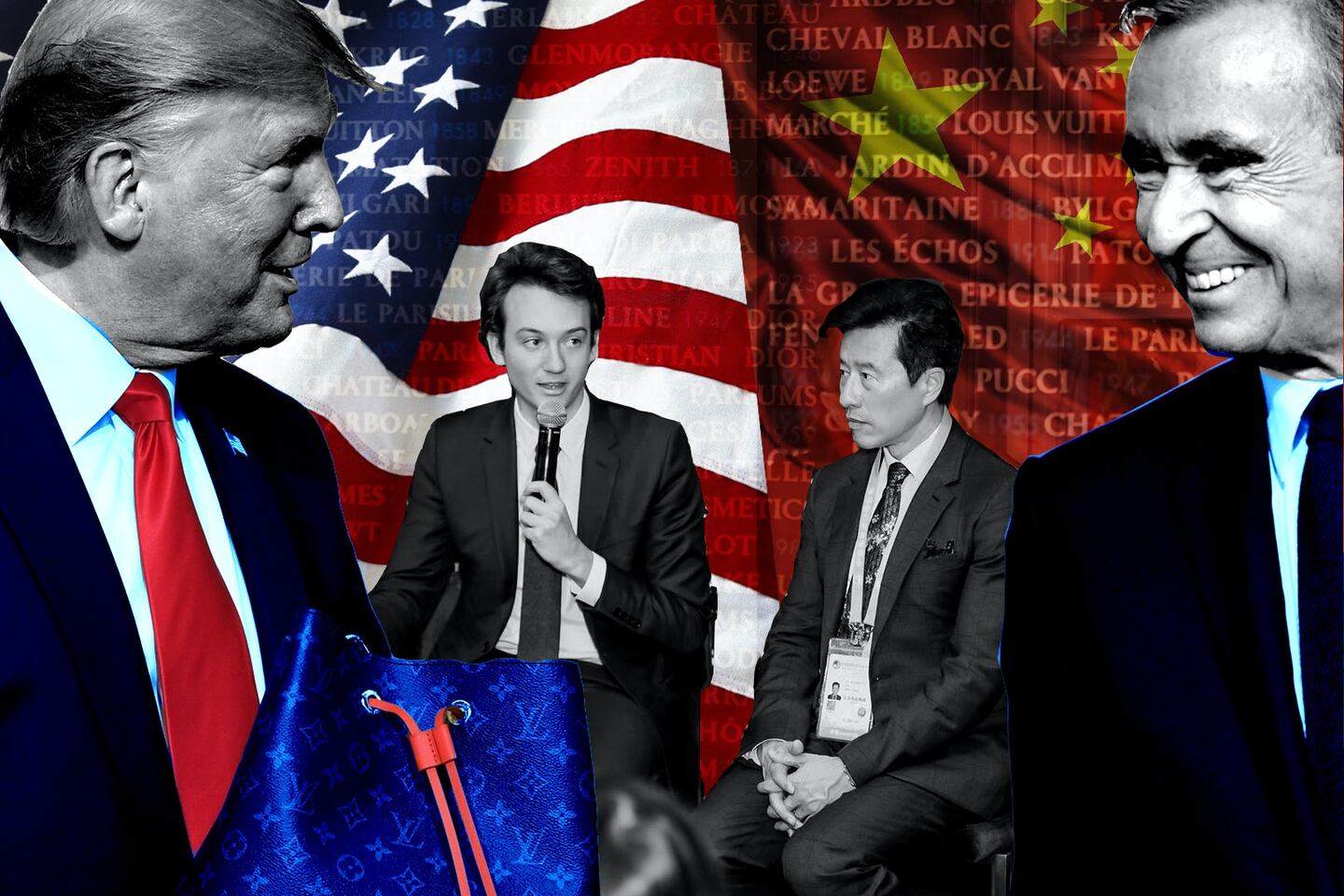
SHANGHAI, China — The Shanghai National Exhibition and Convention Centre is not a luxurious place. Situated in the city’s western suburbs at the very end of the extensive subway’s reach, the four-leaf clover-shaped edifice is more accustomed to hosting trade shows for machine tools and orthopaedic device manufacturers than luxury goods.
Popular fast food chains ring the interior atrium to feed foot-weary exhibitors and visitors in their tens of thousands almost every week. It’s certainly not the kind of place you would expect the world’s largest luxury conglomerates to choose in order to convey their desirability to China’s affluent consumers — not only the most voracious in the world, but also some of the most status-conscious.
Yet here they are. The delicate white floral arches of the LVMH pavilion and the sleek modernism of its Kering counterpart are situated right next door, welcoming the half million visitors expected to traipse through the second China International Import Expo (CIIE), running from November 5 to 10.
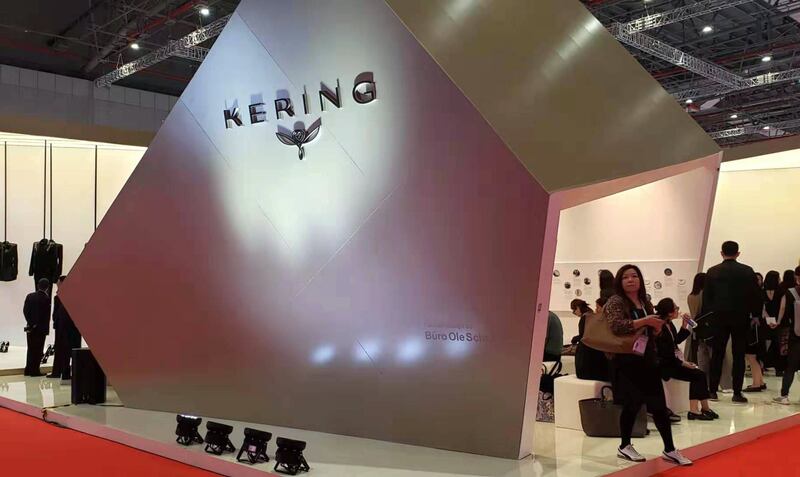
The Kering pavilion at CIIE | Source: Casey Hall for BoF
ADVERTISEMENT
Inside both of the company pavilions, brands from the respective portfolios show off high tech products and designs highlighting Chinese culture and traditions. Strangely for two arch competitors, a spirit of co-operation is in the air.
It is difficult to overstate the importance of the CIIE to China’s government. Though the CIIE was initially conceived as part of the country’s Belt and Road Initiative, it has morphed into a geopolitical show of China’s consumer strength, and a demonstration of the country’s openness to global business as an “America First” message raises uncertainty about the place of the US as the most desirable trade partner on earth.
Chinese President Xi Jinping’s opening remarks of the second edition of the expo on Tuesday were not subtle in hammering this point home.
“Distances between countries are getting shorter, and interactions among countries are growing, hence the possibility of differences and frictions,” Xi said, alluding to his country’s ongoing trade war with the US.
“We need to join hands with each other instead of letting go of each other’s hands,” he added, in a message to the world leaders in attendance, including French President Emmanuel Macron.
According to Rodrigo Zeidan, associate professor of practice of business and finance at NYU Shanghai, the CIIE is an unusual trade show, with a host of heads of state and trade ministers in attendance alongside private businesses and industry groups, because it’s as much about politics as it is about trade.
China is trying to portray to the world that amidst the trade war, it's business as usual.
“In my view, the China Import Expo is a political event in which China is trying to portray to the world that in a sense that amidst the trade war, it’s business as usual. But it’s also an important event to strengthen trade ties through regional trade agreements,” he said.
Italy and France have been awarded special status at this second edition of CIIE, helping to attract more luxury brands from these countries to show at the fair. Italy is also one of the only Western European countries to sign onto the Belt and Road Initiative.
ADVERTISEMENT
These two countries are particularly attractive for CIIE organisers because of their reputation for exporting high quality lifestyle products to China, an area of the fair that has been significantly beefed up this year, in accordance with Xi Jinping's ongoing calls for a nationwide "consumption upgrade".
As Chinese exports contract, an increase in domestic consumer spending would benefit the country’s traditionally manufacturing-heavy economy. This has become especially important as trade friction causes worse than expected import-export figures in recent months. According to Chinese customs data, exports fell 3.2 percent in September from a year ago, while imports dropped 8.5 percent during the same period.
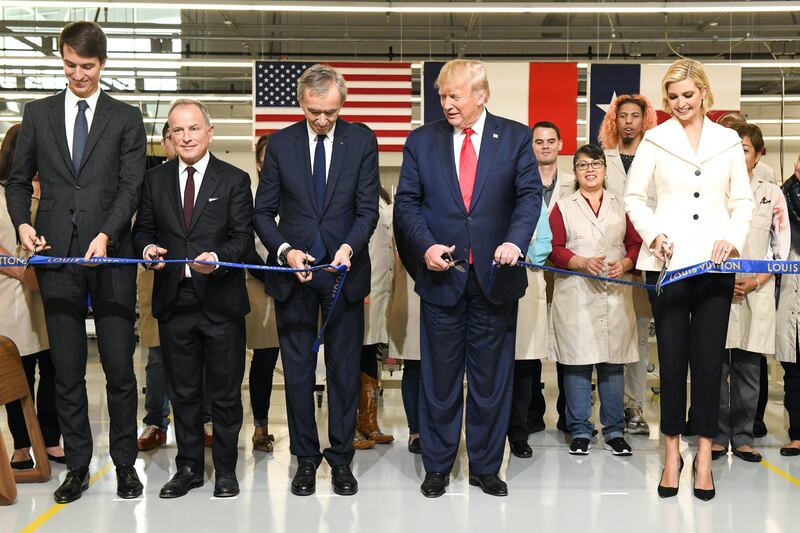
Alexandre Arnault, Louis Vuitton CEO Michael Burke, President Donald J. Trump, LVMH Chairman Bernard Arnault and First Daughter Ivanka Trump participate in a ribbon-cutting ceremony at Louis Vuitton's new factory in Texas | Source: Courtesy
The lifestyle area of the CIIE, housing pavilions from LVMH, Kering, Estée Lauder, L'Oréal and an almost deserted pavilion from Dolce and Gabbana, boasts 63,000 square meters of exhibition space with more than 830 exhibitors from 87 countries and regions, including over 30 Fortune Global 500 companies showing gems, cosmetics, household chemicals, furniture, and baby products.
China and its CIIE showcase have not been graced with the presence of LVMH Chairman and Chief Executive Bernard Arnault, who appeared in Texas in person in order to inaugurate a new factory alongside President Trump last month. That controversial meeting was viewed by many as a tactic to remain in the good graces of the president, whose policy-making is often driven by personal relationships.
Rather, son Frédéric Arnault, the 24-year-old strategy and digital director of LVMH watch brand Tag Heuer, was on hand to tour the fair alongside LVMH Greater China Group President Andrew Wu.
LVMH owes much of its continuing growth to the China market. Sales in Asia (excluding Japan) were up 12 percent in the third quarter of the year, with LVMH citing strong performance across the region despite the ongoing political unrest in Hong Kong.
In spite of broader economic headwinds for China including a slowdown in officially reported GDP growth, China’s consumers have remained steadfast in their desire for luxury products. According to research from McKinsey, China delivered more than half the global growth in luxury spending between 2012 and 2018, and is expected to deliver 65 percent of the world's additional spending heading into 2025.
ADVERTISEMENT
China delivered more than half the global growth in luxury spending between 2012 and 2018.
Although some American companies (for example, jeweller Tiffany & Co., currently in takeover talks with LVMH) have been impacted by tariffs imposed by both the US and China on Chinese and American-made products, European players like LVMH and Kering have been able to side-step some of the tariff pain due to their diversified portfolio of brands and product categories and a supply chain anchored in Europe.
Questions over the meaningfulness of the CIIE (in terms of actual business done at the event) are a taboo topic in China and participating brands don’t tend to provide conclusive answers either. According to official Chinese government data, import deals worth $57.8 billion were signed during the first expo, but many of these deals were rumoured to have been agreed in advance and announced at the event to ensure better exposure.
A survey by the European Union Chamber of Commerce in China released this week showed that half of the deals signed by European businesses during last year’s event have not been executed, a figure disputed by Chinese sources.
Whether or not the CIIE a good place to boost revenues is somewhat irrelevant though, according to experts.
“To understand why this is such a big deal, you have to understand the importance of symbolism in [Chinese] business relationships,” Zeidan explained.
Although major international conglomerates like LVMH and Kering are unlikely to do a great deal of business at CIIE, being there is an important signal to partners, stakeholders and officials in China.
Luxury fashion's two heavy hitters have been keeping busy walking a political tightrope that has – so far, at least – brought them nothing but gain.
“It’s a stake in the ground to say, ‘We’re very much committed to the China market’. It’s about the marketing but it’s also about political status,” Tianbing Zhang, consumer products and retail sector leader at Deloitte China, said. “I think the show of that commitment to the China market is more important that communicating directly with consumers [here at the fair].”
LVMH too is unequivocal about their reason for being at the fair. When representing the conglomerate at a signing ceremony with CIIE organisers earlier this year, Antoine Arnault, Berluti CEO and Loro Piana chairman said, "the question isn't to know if joining the CIIE will help the LVMH Group to achieve its goals in China. The real challenge is to demonstrate our affection and admiration for China, our friendship for its people, and our willingness to partner with its government."
Indeed, luxury fashion’s two heavy hitters have been keeping busy maintaining friendly appearances with the opposing sides of the ongoing trade war, walking a political tightrope that has – so far, at least – brought them nothing but gain. But as the stakes get even higher, the delicate balancing act will not get any easier.
Disclosure: LVMH is part of a group of investors who, together, hold a minority interest in The Business of Fashion. All investors have signed shareholders’ documentation guaranteeing BoF’s complete editorial independence.
 Opens in new window
Opens in new window时尚与美容 FASHION & BEAUTY
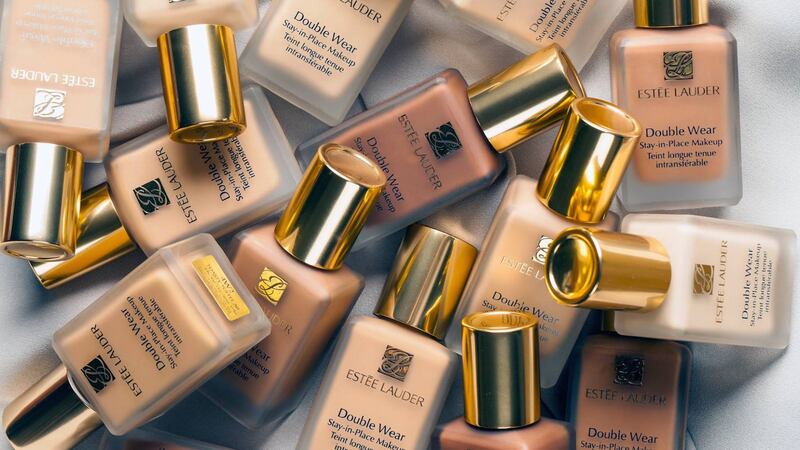
Source: Estée Lauder
Trouble Ahead for Estée Lauder?
The New York-based beauty conglomerate cut its full-year profit forecast last week, driven primarily by the political unrest in Hong Kong. Though the results were better than expected, news that net sales in Hong Kong had dropped 20 percent in the first quarter put Estée Lauder among the global companies taking a hit from the city's 22 weeks of unrest (others include Prada and Hugo Boss). But the beauty giant is also facing challenges at home, where it predicts that a stronger dollar will take 5 cents per share off its profit, and sales fell 6 percent. And while Chief Financial Officer Tracey Travis said that the company has yet to feel a slowdown in mainland China, moderating growth amid the global macro slowdown is another headwind Estée Lauder must deal with. (NowFashion)
Chinese Consumers Take a Shine to Buying Diamonds Online
Diamonds have long lagged behind other categories benefiting from China's e-commerce boom, and only one percent of diamond sales were made online in 2017. But De Beers, the world's largest supplier of rough diamonds by value, says that digital sales in the country are picking up (though it declined to disclose how much the figure has increased since). Online sales will prove critical given the current political situation in Hong Kong, where Chinese tourists have long frequented for shopping sprees. And De Beers is facing strong competition: Hong Kong-based Chow Tai Fook has been embedding technology into its physical stores and developing its mainland e-commerce business, while Tiffany & Co — hot on the heels of the LVMH bid to acquire it — has also been tuning up e-commerce functionality in the country. (SCMP)
How China’s Lipstick King Broke a Livestream Sales Record
Taobao alone sold over $15 billion worth of goods through its 4,000 livestream hosts last year, but China's livestream fever is still going strong. During this month's pre-sale period for the Singles' Day shopping extravaganza, famed Taobao livestream host Li Jiaqi — also known as China's 'Lipstick King' for his hit reviews of beauty brands newest shades and formulas — made history. Not only did Li sell products worth 100 million yuan ($14,287,780) in just six minutes, the stream, which went on for five hours, hit 31 million viewers at one point. Each of the 39 products Li recommended was sold out within five minutes, thanks in part to his low price guarantees, gifts with purchases and an added scarcity factor: products are only made available at the disclosed price point for 10 minutes at most, and viewers have only seconds to claim trackable coupons. (Walk the Chat)
科技与创新 TECH & INNOVATION
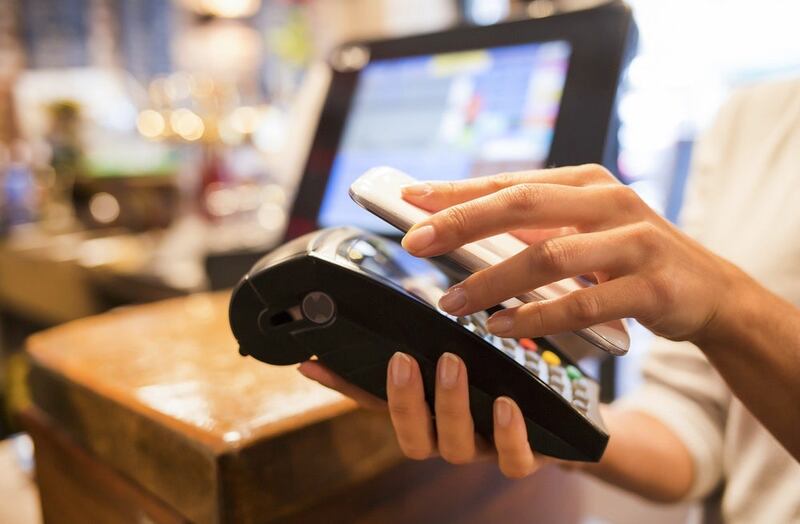
In store mobile payment | Source: Shutterstock
Alipay Gains Edge in Mobile Payments Race
For years, visitors haven't been able to use mobile payments in China (where over 86 percent of the population have ditched cash and credit cards) as leading players Alipay and WeChat Pay, operated by tech giants Alibaba and WeChat, only linked up with Chinese bank accounts. But no longer, since Alipay unveiled its international e-wallet this week, allowing foreign visitors with no local bank accounts or phone numbers up to 90 days' usage of its app. The move gives Alibaba's Ant Financial an edge over its main rival in the world's top cashless market, though the two remain neck-to-neck: Ipsos data for the fourth quarter of 2018 estimated that 86.4 percent and 70.9 percent of users used WeChat Pay and Alipay respectively, and 64 percent used both apps. (Sohu)
Why China is Breeding Fewer Unicorns
China has more unicorns than the US, but will this last? Investor demand has gone lukewarm for China's Star Board, a testing ground for the mainland's new listing rules tailored for tech startups. The Nasdaq-style high-tech board was launched on the Shanghai Stock Exchange (SSE) in July, but stocks that debuted on the board last week are failing to match their predecessors' surges. This may be just one of the many reasons why only 36 new unicorns were fostered in China in the first half of 2019 — a 30 percent drop year-on-year. A wider economic slowdown, Beijing's crackdown on risky lending and the bursting of a funding bubble have seen the number of venture capital deals drop by roughly half in the third quarter to its lowest in five years. But many reckon that the change is for the best as companies are paying more attention to due diligence, meaning strong players can still succeed in the lucrative market though it will take longer to do so. (Bloomberg, Ozy)
China Continues App Crackdown Over Privacy Violations
This week, Chinese regulators ordered the country's app developers and service providers to stop illegally collecting user data, signalling Beijing's resolution to fix China's unauthorised data collection problem. China's Ministry of Industry and Information Technology has announced a campaign against infringing apps, threatening suspension or removal if non-compliance is discovered after November 10, and the likes of Weibo and Bank of China have recently been called out for forcing users to hand over personal information in exchange for access or requesting access to information beyond what was required for functionality. Meanwhile, revised cybersecurity rules will go into effect December 1, which may expose foreign firms to local inspectors as Beijing tightens controls around sensitive data. (Technode)
消费与零售 CONSUMER & RETAIL
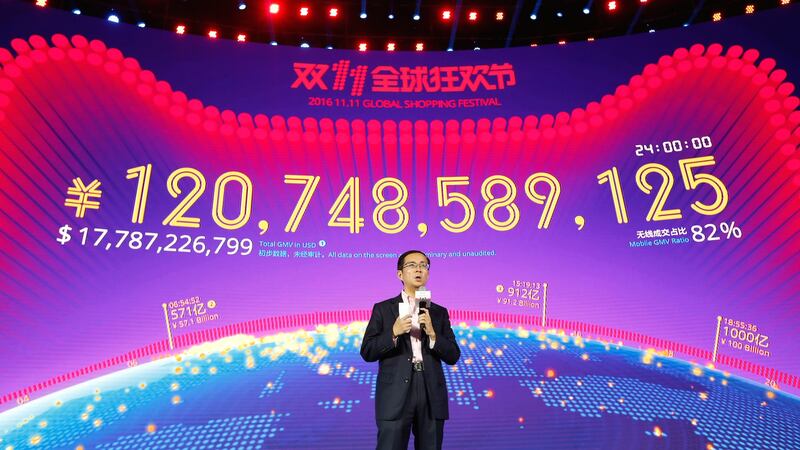
Last year's Alibaba Singles' Day event | Source: Alibaba Group
Xiaohongshu, Meituan Join Talks Ahead of Singles' Day
On November 1, Shanghai's Market Supervision Authority brought together e-commerce companies like Xiaohongshu, Meituan and Pinduoduo to discuss false advertising and counterfeits ahead of Singles' Day, as retailers are primed to make their biggest windfalls of the year. The talks aimed to keep e-tailers on track with local laws and regulations, as policy makers struggle to keep up with the country's burgeoning KOL culture and social e-commerce platforms. With sites such as Pinduoduo using a group-buying format and focus on lower-priced goods, fake tech, beauty, food and beverage goods are especially rife, and new digital formats (such as livestreams) are challenging disclosure requirements for sponsored content. The move ties into wider efforts from the Chinese government to regulate its local firms, after a new e-commerce law came into effect earlier this year. (Sina News)
Is Alibaba Immune to China’s Economic Slowdown?
The retail giant saw a 40 percent surge in sales over the last quarter, its first earnings report since Daniel Zhang succeeded Jack Ma as CEO. Despite China's GDP hitting a thirty year low and ongoing uncertainty in the wake of its trade war with the US, Alibaba beat expectations when it reported $16.7 billion in revenues and tripled net income of $9.9 million, driven mostly by an equity acquisition in affiliate Ant Financial two months ago. But another test is incoming: next week's Singles' Day festival has served as a barometer of consumer sentiment for years and over three-quarters of consumers surveyed by AlixPartners said they would reconsider purchases from American companies this year in light of political tensions between the two superpowers. (Tech in Asia)
With Taikoo Li plans, Could Xi’an Surpass Chengdu?
Xi'an may soon welcome its own iteration of Taikoo Li, the retail concept by high-end developers Swire Properties that has transformed districts in Shanghai, Beijing, Guangzhou and Chengdu. Local official Lijun Yao told local media last week that Swire would play a role in rejuvenating the area near Xi'an Museum with commercial developments and hotels, noting that a Taikoo Li deal would support the city in its goal to surpass rival Chengdu as China's up-and-coming cultural hot spot. Another top luxury retail player, SKP, already put its flag down in the historical city and unveiled its Xi'an site last year, but it may have more catching up to do: this year Chengdu topped Milken Institute's Best Performing Cities Index in China for the 3rd time, while Xi'an, having advanced three spots since last year, ranked sixth. (Jiemian)
政治、经济、社会 POLITICS, ECONOMY, SOCIETY
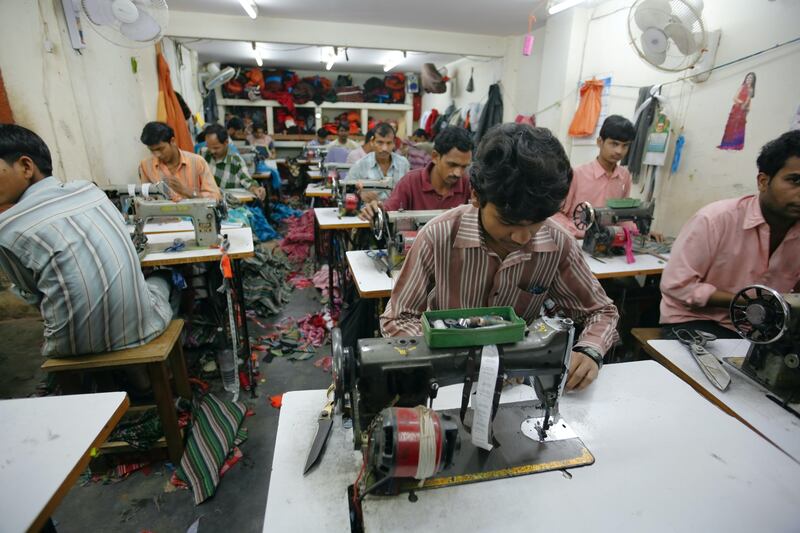
Textile workers in an Indian factory | Source: Shutterstock
Trade War Accelerates Supply Chain Shift to Southeast Asia and Bangladesh
As manufacturing costs rise in the mainland, the likes of Calvin Klein, Tommy Hilfiger, Levi's and Uniqlo have moved their entire production operations out of China and into Vietnam, Cambodia and Bangladesh. Rising labour costs and a shift away from making low-cost goods has seen manufacturers leave what was once a global production hub, but the trade war has sped up the exodus. And though Trump has made clear his intention to bring manufacturing to the US, few companies are looking to move their supply chains westward. Vietnam has become a frontrunner in footwear while Bangladesh leads in apparel, though the latter is still dealing with labour issues in the wake of 2013's Rana Plaza Disaster. Ultimately, no single country will be able to replace China in the global manufacturing landscape, and brands will need to allocate their suppliers wisely. (SCMP)
India Opts Out of China-Backed Pan-Asian Trade Deal
After seven years of talks to cement a 16-nation Asian trade pact, signatories of the Regional Comprehensive Economic Partnership (RCEP) hit a bump in the road this week when India announced it would pull out over terms that were against its interests. RCEP looked to create a free-trade zone that would make up 39 percent of the global economy, by involving the ten Asean (Association of Southeast Asian Nations) countries in addition to China, India, South Korea, Japan, Australia and New Zealand. The partnership was the main topic of discussion at the Asean summit that ended November 4, but Indian representatives brought on fresh demands at the last minute, in a move some argue would protect its manufacturers from competition in China. (FT)
A Small Step for China's #MeToo Movement
The Chinese equivalent of #MeToo is finally gaining speed with legal minds and policy makers. The movement arose in the country over a year ago when a dozen women accused men in media, academia and tech of sexual harassment and assault. A series of recent legal victories have seen the courts side with victims, and Beijing is drafting a law on sexual harassment to require more robust protection for employees. However, activists are also facing censorship amid more severe responses to their calls for change: Chinese journalist and leading MeToo activist Sophia Huang was detained by police this month after publicising her involvement in Hong Kong's pro-democracy protests, while other women that have made accusations face mounting defamation suits. Even so, small wins in the country's courts and a growing network of support groups are giving activists hope for the future. (The Guardian)
China Decoded wants to hear from you. Send tips, suggestions, complaints and compliments to our Shanghai-based Asia Correspondent casey.hall@businessoffashion.com.
With consumers tightening their belts in China, the battle between global fast fashion brands and local high street giants has intensified.
Investors are bracing for a steep slowdown in luxury sales when luxury companies report their first quarter results, reflecting lacklustre Chinese demand.
The French beauty giant’s two latest deals are part of a wider M&A push by global players to capture a larger slice of the China market, targeting buzzy high-end brands that offer products with distinctive Chinese elements.
Post-Covid spend by US tourists in Europe has surged past 2019 levels. Chinese travellers, by contrast, have largely favoured domestic and regional destinations like Hong Kong, Singapore and Japan.